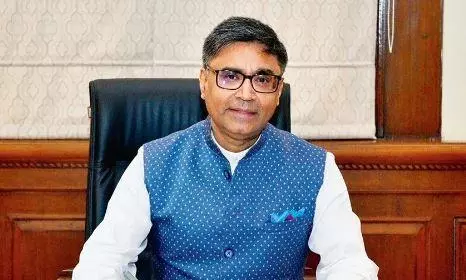India, China Reach Agreement on Patrolling Along LAC
Pact comes ahead of Modi, Xi’s meet at Brics summit in Russia;

New Delhi: In a major breakthrough, India and China on Monday reached an agreement on patrolling arrangements along the Line of Actual Control on the Sino-Indian border “leading to disengagement and eventually a resolution of the issues that had arisen in these areas in 2020”.
The agreement comes ahead of a possible meeting between Prime Minister Narendra Modi and Chinese President Xi Jinping on the sidelines of the forthcoming Brics summit in the Russian city of Kazan on Tuesday and Wednesday.
At a special media briefing, foreign secretary Vikram Misri said, “I can share with you that over the last several weeks, Indian and Chinese diplomatic and military negotiators have been in close contact with each other in a variety of forums. As a result of these discussions, an agreement has been arrived at on patrolling arrangements along the Line of Actual Control in the India China border areas, leading to disengagement and a resolution of the issues that had arisen in these areas in 2020. We will be taking the next steps on this.”
Monday’s announcement will be the fourth such agreement reached between the two sides in the past four years. It may be recalled that the first announcement between the two sides on military disengagement was in February 2021, in the Pangong Tso area. The second announcement was on disengagement in the Gogra area (PP17A) in August 2021. The third announcement on disengagement was at the Gogra-Hot Springs (PP-15) in eastern Ladakh in September 2022. It has now taken two more years for the fourth pact.
Earlier, in 2017, the two nations had also resolved another military face-off with each other at Doklam in Bhutanese territory.
In response to queries, the foreign secretary said, “These discussions had in the past resulted in resolution of stand-offs in various locations. There were a few areas where the stand-offs had not been resolved.”
Asked whether there would be a bilateral meeting between Modi and President Xi in Kazan, the foreign secretary did not give a direct answer but said that the schedule of Modi was being looked into as there had been a number of requests from foreign leaders for bilateral meetings. He also said Modi will return from Kazan on Wednesday itself due to “pressing commitments at home”, while the Indian delegation at the Brics outreach programme with other nations on Thursday in Kazan would be led by External affairs minister Jaishankar.
Modi and Xi had last interacted and had exchanged pleasantries during the G-20 summit two years ago at Bali, Indonesia. However, perhaps due to tensions with India, President Xi had skipped the G-20 summit hosted by India in New Delhi in September last year, although Beijing was represented at a senior level.
It may be recalled that India’s ties with China were strained after Chinese troops amassed at the LAC in Ladakh in April-May 2020 in violation of bilateral border pacts leading to the horrific clash between Indian and Chinese troops in the Galwan Valley in mid-June 2020, in which troops on both sides were killed.
Later, at an event organised here by a media group, external affairs minister S. Jaishankar said on Monday: “We reached an agreement on patrolling. That’s as much as I can share with you… The understanding to my knowledge is that we will be doing the patrolling which we were doing in 2020. It’s a positive development. It’s a product of a very persevering diplomacy. It has been a very patient process.”
He also said, “We are on a track of economic rejuvenation. If you are predicting developments of this century, you can’t discount India and China. We are neighbours. We have unresolved boundary issues. Two large neighbouring countries rise next to each other in the same timeframe is not easy. This will require a lot of skill and diplomacy. Both of us will want to become larger.
The external affairs minister said peace and tranquility along the border is important for the overall ties between the two countries.
“We always said that if you disturb the peace and tranquillity how can the rest of the relationship go forward?”
To a question, Jaishankar indicated that India will be able to carry out patrolling in Depsang and other areas.
“So what has happened is that we reached an understanding which will allow the patrolling which you spoke about Depsang, that's not the only place,” he said.
“There are other places also. The understanding to my knowledge is that we will be able to do the patrolling which we were doing in 2020 (prior to the standoff),” he said.

